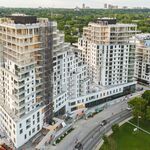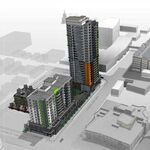kEiThZ
Superstar
I would agree with that. Viva Blue provides excellent, frequent service in the Yonge corridor. There's no immediate need to extend the subway past Steeles.
Bunching and bus congestion.
I would agree with that. Viva Blue provides excellent, frequent service in the Yonge corridor. There's no immediate need to extend the subway past Steeles.
Fix'dBunching and bus congestion is an understatement.
Fix'd
Actually, the Yonge Extension could easily get the TTC more money. YRT will be the operator funneling all the riders onto the Yonge line, so the TTC will be able to charge them a double fare while not having to provide the money-intensive feeder bus service. Since it won't have to provide the bus service, it's basically getting boatloads of "free" passengers, ready to pay the extra TTC fare for the subway.Considering the massive pressures the city budget is under--we don't even have the money to pay for the TTC we have now--it's perfectly legitimate to wonder why we should be replacing one money losing bus service with one even bigger money losing subway service.
The funny thing is that we're not overbuilding lines. People don't seem to understand the fact that this is what Toronto needs. Sheppard is not under capacity. Considering it's only 5 km long, it's actually got an astounding ridership, which is growing every day. Extending it to STC would easily put it's ridership into the 100 k, which will continue growing even more.As Whoaccio pointed out, overbuilding lines is just as wasteful as building massive bus stations because it costs a lot of money in borrowed capital and operations. This is something that is very difficult to justify considering the dire state of the city's finances. Unlike vaunted cities like Chicago, the province and feds aren't dropping bags of money on us to run empty trains.
Actually, the Yonge Extension could easily get the TTC more money. YRT will be the operator funneling all the riders onto the Yonge line, so the TTC will be able to charge them a double fare while not having to provide the money-intensive feeder bus service. Since it won't have to provide the bus service, it's basically getting boatloads of "free" passengers, ready to pay the extra TTC fare for the subway.
The TTC wouldn't pay for the B-Y improvements, nor would they pay for the DRL. Those would both be government capital projects like the Yonge extension. So every new rider on the Yonge line that'll come is essentially a free rider to the TTC. They don't have to pay to get them to the subway, as they do for the rest of the system.DSC said:Clearly you have not used the Yonge line much - if more riders are funneled onto it the capacity will have to be increased: more and/or longer trains, more room in stations and a major expansion of the Bloor/Yonge interchange. This will all cost the TTC LOTS of money.
I should stress that I'm in favour of extending the line but you need to look at all the costs involved. Extra passengers are NOT "free" passengers!
If cancellation is really on the table, with this new massive provincial deficit, surely the only responsible thing to do by the provincial government would be simply to simply cancel all the projects, reduce provincial spending, and study projects that can be done when the provincial deficit is eliminated in 2015 or so.
There's little point the province spending $billion on transit when so many here have made it so clear that it's unnecessary.
Which is a great argument for continuing with all the construction that is being started and tendered now, and will start in 2010. Going back the design/EA phase would start construction after any stimulus is needed.Besides what about stimulus spending. If there is any a more convenient time to push for mass infrastructure project funding, it is now.
Which is a great argument for continuing with all the construction that is being started and tendered now, and will start in 2010. Going back the design/EA phase would start construction after any stimulus is needed.
public transit usage goes up because private car ownership will soon become a luxury beyond the reach of many middle-class Torontonians




